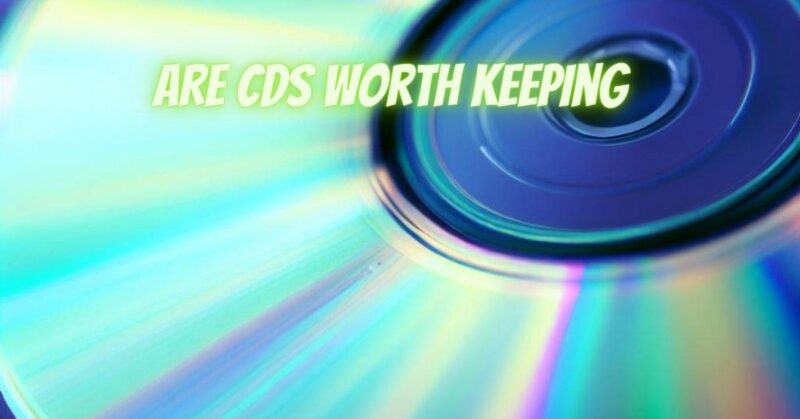In an era dominated by digital streaming and cloud-based music libraries, the question of whether compact discs (CDs) are worth keeping has become a topic of contemplation for music enthusiasts and collectors alike. As technology continues to reshape the way we consume music, we must examine the reasons behind retaining physical music collections and explore the enduring allure of CDs in a world seemingly obsessed with convenience and virtual access.
- Nostalgia: A Gateway to the Past
For many music lovers, CDs evoke a profound sense of nostalgia, reminding them of cherished moments when browsing record stores, meticulously organizing their collections, and delighting in the tangible artistry of album covers. Holding a physical CD, with its distinct artwork and liner notes, connects listeners to the era when music was more than just an ephemeral stream—it was a tangible and personal experience.
The ritual of carefully selecting a CD, placing it into a player, and listening from start to finish can transport individuals back to the simpler times when music was a cherished possession, not a disposable commodity.
- Sound Quality: The Audiophile’s Delight
One of the primary reasons why CDs continue to hold value is their superior sound quality. As lossless audio formats, CDs preserve the original studio recording with exceptional fidelity. Unlike their lossy counterparts, CDs retain all the nuances, dynamics, and intricacies of the music, allowing audiophiles to experience the artist’s work as intended.
For those with high-end audio equipment and a discerning ear, the difference in sound quality between CDs and compressed digital files or streaming services can be striking. This auditory allure ensures that CDs remain an essential choice for purists who crave the purest sound experience possible.
- Ownership and Control: A Sense of Autonomy
Owning physical CDs grants individuals a sense of ownership and control over their music collection. In contrast to streaming services, where access to content is dependent on internet connectivity and the availability of a vast music library, CDs provide autonomy. With a CD, the listener possesses a tangible copy of their favorite music, free from concerns of licensing agreements or digital rights management.
Additionally, physical CDs are immune to the sudden removal or alteration of music content that can occur on streaming platforms due to licensing disputes or copyright issues. This autonomy fosters a deeper connection between the listener and the music, empowering them to curate their personal musical journey.
- Collector’s Items: Value and Rarity
As technology advances, physical media like CDs may become collector’s items, gaining value and rarity over time. For collectors, rare and limited-edition CDs can hold significant sentimental and monetary worth. These collectors’ items may appreciate in value, making CDs a potential investment for those with a keen eye for the future.
While digital streaming and cloud-based music libraries have revolutionized music consumption, compact discs (CDs) continue to wield their own unique allure, worth, and significance. From evoking nostalgia and offering superior sound quality to providing a sense of ownership, control, and collectibility, CDs hold a special place in the hearts of music enthusiasts and collectors.
Ultimately, whether CDs are worth keeping depends on individual preferences, priorities, and sentimental attachments. Embracing physical music collections can transcend the ephemeral nature of digital media, offering a tangible connection to the artistry of music and a lasting legacy of personal musical taste.
As technology progresses, the choice to preserve physical music collections becomes a deliberate act of preserving history, culture, and the irreplaceable moments that made music an essential part of the human experience. For those who value the magic of music beyond its digital existence, CDs remain a worthy treasure worth keeping and cherishing for generations to come.


